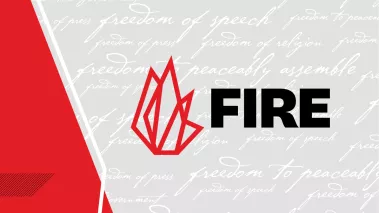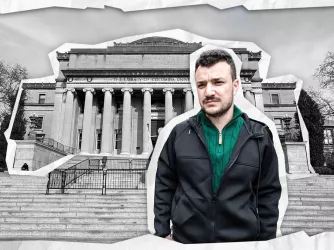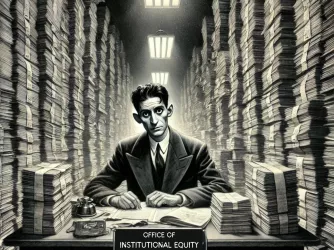Table of Contents
UNC Greensboro Drops All Charges Against Free Speech Protestors

GREENSBORO, N.C., January 17, 2006—Bowing to public pressure, the University of North Carolina at Greensboro (UNCG) has dropped charges against two students who led a peaceful protest against the university’s policy of quarantining free speech to small areas of campus. The Foundation for Individual Rights in Education (FIRE) brought UNCG’s repression to light in December.
“It’s about time that UNCG realized the error of its ways,” declared Greg Lukianoff, FIRE’s interim president. “Punishing students for having the courage to protest the university’s unconstitutional rules would have been an exercise in tyranny.”
This resounding victory for free speech came just days after FIRE and the Pope Center for Higher Education Policy released a report documenting dozens of policies from across the University of North Carolina System—including UNCG—that violate the U.S. Constitution. UNCG had been on the defensive since FIRE revealed in December that students Allison Jaynes and Robert Sinnott were to be punished for violating the school’s “free speech zone” policy by protesting outside the school’s two small free speech zones.
“When a university establishes a ‘free speech zone,’ it turns the rest of its campus into a censorship zone,” remarked Lukianoff. “Nothing could be further from the ‘marketplace of ideas’ that a university is supposed to represent.”
Jaynes and Sinnott led a November 16, 2005, protest against the school’s free speech zone policy on a grassy area outside the library. During the protest, an administrator ordered them to move to a free speech zone. Jaynes and Sinnott refused, citing the First Amendment. Administrators and police did nothing further to stop the peaceful protest, but a few days later Jaynes and Sinnott were charged with a “violation of Respect” for refusing an order to stop their protest.
The students contacted FIRE, which wrote to UNCG Chancellor Patricia Sullivan and then to UNC System General Counsel Leslie Winner, explaining that UNCG’s blanket restrictions on free speech outside of the “free speech zones” are contrary to the First Amendment. FIRE also reminded UNCG that it has defeated similar policies at Texas Tech University, West Virginia University, and Citrus College in California.
Late last Friday, Jaynes and Sinnott received notice from the university that the charges against them had been completely dropped. FIRE has also learned that UNCG’s chancellor has established a committee to reexamine the university’s “free speech zone” policy.
“We are gratified that UNCG dismissed its charges against the students, but UNCG still has a lot of work to do before it is in line with the Constitution,” commented Lukianoff. “Until the university finally eliminates its speech restrictions, FIRE’s job will not be done.”
FIRE is a nonprofit educational foundation that unites civil rights and civil liberties leaders, scholars, journalists, and public intellectuals from across the political and ideological spectrum on behalf of individual rights, due process, freedom of expression, academic freedom, and rights of conscience at our nation’s colleges and universities. FIRE’s efforts to preserve liberty at the University of North Carolina at Greensboro can be viewed at thefire.org/uncg.
CONTACT:
Greg Lukianoff, Interim President, FIRE: 215-717-3473; greg_lukianoff@thefire.org
Patricia Sullivan, Chancellor, University of North Carolina at Greensboro: 336-334-5266; chancellor@uncg.edu
Recent Articles
FIRE’s award-winning Newsdesk covers the free speech news you need to stay informed.

Trump administration’s reasons for detaining Mahmoud Khalil threaten free speech

VICTORY! 9th Circuit rules in favor of professor punished for criticizing college for lowering academic standards

Navigating the Kafkaesque nightmare of Columbia's Office of Institutional Equity
